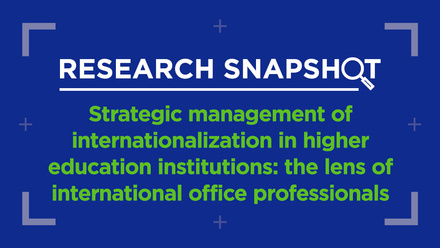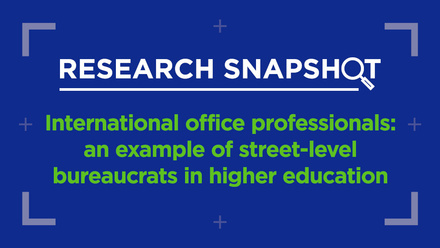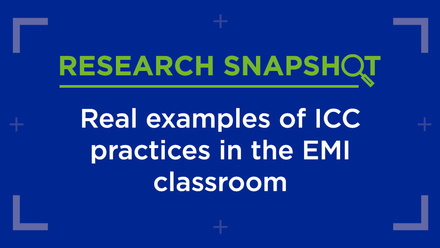Lessons learned along the way: 36 Summers, 12 lessons for life

In 36 years of planning and delivering Summer Schools, I have encountered triumph and disaster (thankfully, not in equal measure), learning valuable lessons at every stage. These have shaped my approach to work, partnerships, and life itself.
Starting in 1987, I had no idea how long the journey would be, or what lessons I would learn. After a career as administrator, trainer, speaker and director, I realise how much Summer Schools have taught me. Along the way, I have learnt lessons that are relevant for so many: Summer School organisers, students, institutions, teachers and pretty much anyone, really! From disasters to triumphs, every day provides new challenges, and every challenge needs a response. I have chosen 12 lessons that I hope resonate with others throughout their own work/life journey.
1. Believe in what you are providing
"I believe, therefore I do…"
Hearing people recount again and again the opportunities their Summer experience provided, the difference it made and the enjoyment it gave, I know I have found my vocation, and believe in it enough to I have devoted my working life to this provision. When your Summer provision can change lives, it is worth all the effort.
2. Experience counts
"This isn’t going to work…"
In a long career, it is inevitable that now and again, younger colleagues will bound in with an idea you just know is not going to work for our audience, because, time and again, you have seen how students react. Finding a way to explain this and persuade colleagues to rethink has been a challenge. (So has learning not to say, ‘I told you so’!)
3. There’s always another way to do this
"We have a problem…"
There is always a problem! But there is usually more than one possible solution! Being agile, flexible and able to conjure several alternatives, instantly, allows you to select the most appropriate solution.
4. The details matter
"We need to think this through…"
Checklists are your friends. Writing out a step-by-step process means you do not miss even the smallest detail. It might seem a hassle, but when we are rewarded with an unprompted "you’ve thought of everything" it is worth it. (And hopefully, we have!)
5. Disasters happen
A lecturer or team-mate falls ill, a student is hit by a cyclist, there’s a train-strike on departure day …
Okay, you have checked everything on the checklist, so nothing can go wrong? Ha! You are dealing with other people, the weather, health, train strikes … with everything. Prepare for every eventuality, including the unimaginable ones. Disasters happen; it’s how you handle them that matters! (See: 3. "We have a problem…" and find a solution, quickly!)
6. We can get through this
Summer 2022 was tough. Everyone was delighted to be back on site, but my team was too small, 30 people went down with COVID and there was a heatwave
The COVID sufferers had to have meals delivered whilst isolating, temperatures hit 100 degrees, we had to re-arrange timetables for almost a week; it was tough. Over-stretched team-members were tired for weeks afterwards. But we survived, and 96% of students giving feedback were more than satisfied with their experience. Phew! Getting through seemingly insurmountable problems makes you realise that, next time, you can get through this.
7. Everyone has an agenda
"My reason for coming to the Summer Programme is…."
Sometimes it is obvious: "to learn, to earn credit from my college towards my home degree, to refresh my own teaching". But I am now aware of the significant, undeclared agendas: "This is my first venture out after my partner died; I needed this to try to re-boot my own life", or "I’ve missed my Summer Programme friends and I come back every year to be with them", or "I was worried about the level, but these two weeks have shown me what I’m capable of". The Summer Programme can mean so many different things for our participants.
8. Travel broadens (almost all) minds
We open minds, broaden perspectives
People arrive with preconceptions. Most leave with a broader perspective after studying alongside participants from different backgrounds and other countries. Very, very occasionally, at the end of the summer, we wave goodbye to someone who has remained doggedly convinced that their way is the only way. As one colleague once put it: "X is the living exception to the rule that travel broadens the mind". The programmes have opened my mind, so never let me become that person!
9. Building relationships matters
"Can I ask you a favour?"
Yes, if I have been efficient in my professional dealings with you, helped you, answered your questions and put in the effort to build a rapport with you, over a period of years. Then I can ask you (a lecturer, a maintenance person, an accommodation provider, or an overseas partner) for … a last-minute stand-in lecture, help with a mini-repair job, an additional bedroom at short notice or help with a student’s problem. Know and respect those you deal with, and they will help you. And I’ve learned that it is possible to build global friendships, even if we only meet once a year!
10. Listen to what people want, give them what they need
"You need to change this/offer that/increase this/stop doing that…"
Feedback is hugely informative, but is it one perspective, based on a single experience? I have learnt to take note of all complaints and suggestions, then to consider the bigger picture. Some requests are not possible, affordable, feasible or wise! You cannot please everyone all the time, but after 36 years you have a pretty good idea of what everyone needs. Provide what they need, then make the changes which make the most sense.
11. Meeting expectations gets harder every year
Getting better is easy, staying best takes hard work
It has been my privilege to work for one of the most well-known universities in the world. My organisation and our students expect us to provide one of the best Summer Programmes in the world. For the first 10 years I focused on improving it every year. The next 25 were harder. Through sessions and workshops at the EAIE and other networks, I have coached others to set up, finance, advertise and run their own Summer Programmes in Europe and beyond. The result? There are now many more out there, and we have to work even harder to meet much higher expectations.
As a painter who loves light, it has been tough forfeiting every summer, working the longest hours when everyone else is on holiday ... But, when you work a long day in the summer, your drive home is into a beautiful sunset.
12. Be prepared: Summer Schools will change the way you work, and live
Accept the demands that the job makes of you, and relish the rewards
As a painter who loves light, it has been tough forfeiting every summer, working the longest hours when everyone else is on holiday, or relaxing on a warm summer’s evening. I am working long before classes start, and most evenings stay until the evening talk, event or special dinner is over. I do not see family or friends for weeks. But, when you work a long day in the summer, your drive home is into a beautiful sunset. Take holidays when others cannot, relish the quiet moments, enjoy the busyness and rise to the challenges. And the feeling, at the end of a final night's after-dinner speech is tremendous. The students are happy, the teachers enjoyed it. We have done our institution proud, yet again!
For 36 years, it’s been a blast.






